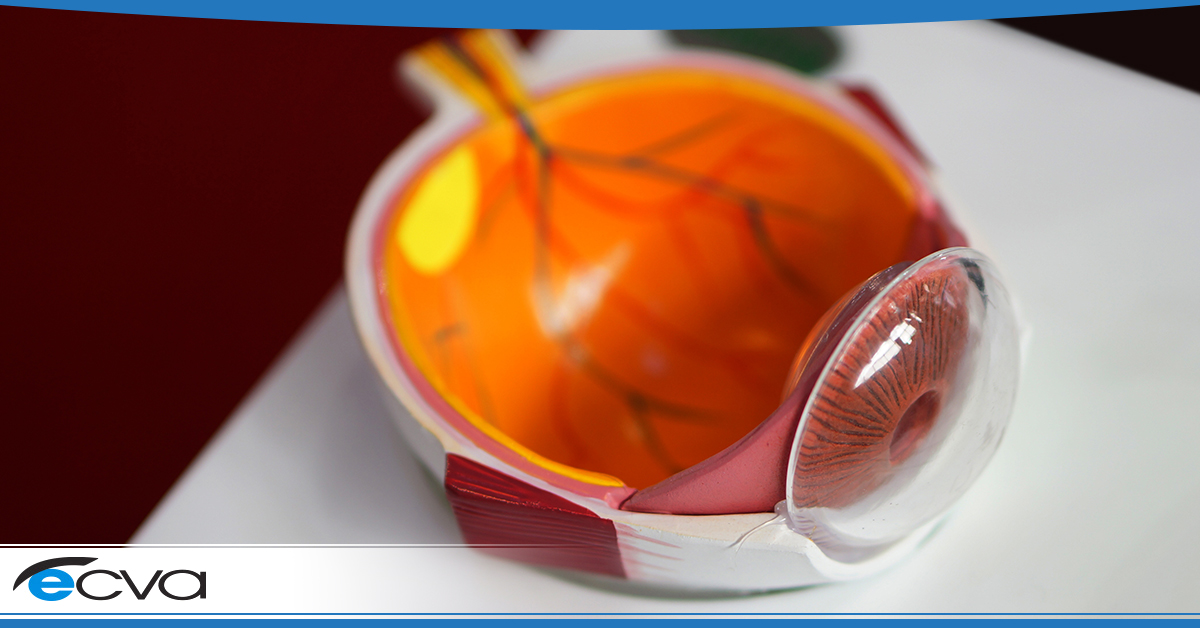Previously, we’ve discussed the signs and symptoms of macular degeneration and treatment options available through your eye doctor. While it’s important to understand the kind of changes that can indicate macular degeneration, ensuring you seek assistance from an eye doctor quickly, there’s more to the condition.
Today, we are going to take a deeper look into macular degeneration. If you are wondering what causes the conditions and if there are any steps you can take to reduce your odds of getting it, here’s what you need to know.
Causes of Macular Degeneration
There are two main kinds of macular degeneration: dry form and wet form. With dry macular degeneration, drusen – a sort of fat deposit – may appear in the macula. The exact cause of drusen themselves isn’t known, though some believe it is waste from a person’s retina.
While a few small drusen may not cause any vision issues, as the yellow deposits grow or become more numerous, they can lead to vision dimming or distortions. Usually, people first notice the changes when they are trying to read. However, in time, dry macular degeneration can harm the light-sensitive cells in your macula. It’s also possible to develop blind spots, typically in your central vision.
Wet form macular degeneration has a different cause. It develops when blood vessels grow in spots underneath the macular where they shouldn’t be, allowing fluid and blood to leak into your retina. Usually, this results in distorted vision, like straight lines appearing wavy. Central vision loss and blind spots can also develop, particularly if there is scarring. Like drusen, it isn’t entirely known why the errant blood vessels form.
Dry macular degeneration can be a cause of the wet form. This causes some to believe that the development of the blood vessels is an attempt to rid the eye of the drusen. However, the wet form can develop without dry form, so there may be other catalysts involved.
Preventative Measures for Macular Degeneration
While it may not be entirely possible to prevent macular degeneration, there are steps people can take to lessen their chances of getting the condition. For example, quitting smoking is a smart move, as there could be a connection between smoking and macular degeneration. Similarly, protecting your eyes from harmful UV rays could help.
Eating a balanced diet is also wise. It ensures you consume enough critical vitamins and minerals that are important for overall health. Plus, obesity is a risk factor, and eating a healthy diet may help you avoid being overweight.
Taking in enough antioxidants (either through diet or with supplements) could also reduce your macular degeneration chances. Additionally, being mindful of your cardiovascular health could make a difference, as individuals with pre-existing heart and blood vessel conditions may be at higher risk of macular degeneration.
Finally, keep up with your eye doctor appointments. By catching macular degeneration early, your chances of preserving your vision go up significantly.
If you haven’t been screened for macular degeneration recently or are experiencing any vision changes, see your eye doctor as soon as possible. At ECVA, our team works diligently to care for our patients, including screening for and treating macular degeneration. If you want to ensure that your eyes are healthy, schedule an appointment at your closest ECVA clinic today.







